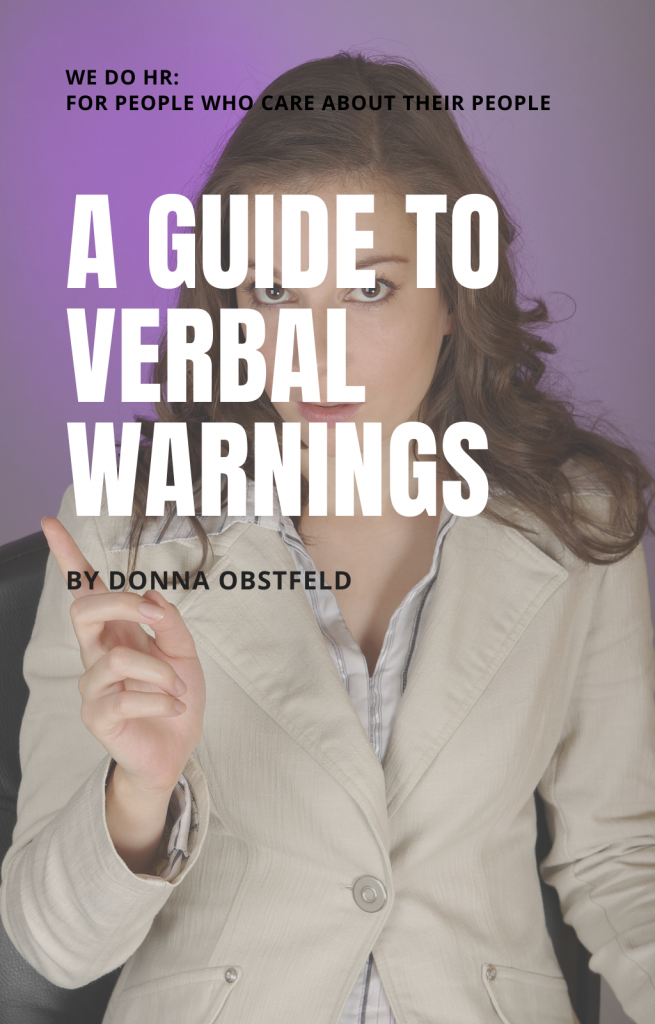A Guide to Verbal Warnings
We know that issuing verbal warnings can be hard, so we have put together an e-book to support you through the process one step at a time.
With checklists, guides and template letters, this is an invaluable resource which no line manager can afford to be without.
Very often, people come to us and say, “I’ve given this person a verbal warning, I now need to discipline them, what comes next?” Unfortunately, the response to that is that unless you’ve gone through a disciplinary process, and the verbal warning given was as a result of that disciplinary process, then actually, there is no verbal warning that you can rely on.
So there are two types of verbal warning. A verbal warning may just be an informal conversation, perhaps you call them one to ones, perhaps you call them supervisions. It’s a meeting in which you point out the things that somebody needs to do to improve, to stop something happening again.
However, if you want that verbal warning to be the first part of a disciplinary process that could lead to a written warning or ultimately to termination, then actually, what you need to do is to go through a process whereby you invite somebody to a disciplinary meeting, give them the right to be accompanied to that meeting, you then hold the meeting, present the evidence, and the outcome of that meeting is a verbal warning.
Now, this is where it gets really confusing, because the verbal warning still needs to be put in writing to the employee to tell them that they’ve been given a verbal warning, and that it will stay on their file for a period of time. Usually with a verbal warning, it’s something like six months. If they do the same thing again within the six month period, you can then rely on that verbal warning when you want to take the next stage of disciplinary.
If it’s beyond the six months, then actually you need to go back and start again potentially, depending on circumstances, but if you haven’t communicated that they’ve been given a verbal warning, then actually, you can’t rely on that at a further stage.
So taking somebody outside, even with a witness, and saying, “This is a verbal warning,” doesn’t count as part of your formal disciplinary process, and all you’re going to do is upset somebody and the likelihood is that you’re also going end up with a grievance against you, because somebody’s going to go and get some advice, talk to a friend, talk to Citizens Advice Bureau, and they’re going to say, “Well, if they didn’t follow a process, then that’s not a verbal warning,” and then you’re likely to get a grievance, and then you’re into a grievance handling procedure.
Click here to watch more #AskDOHR videos
This question is typical of the issues we help our client deal with on a day-to-day basis. We would love to hear from you and if you have a question that you would like answered, please pop it in an email to us at [email protected] or send it to us via twitter @DOHR and #askDOHR.

